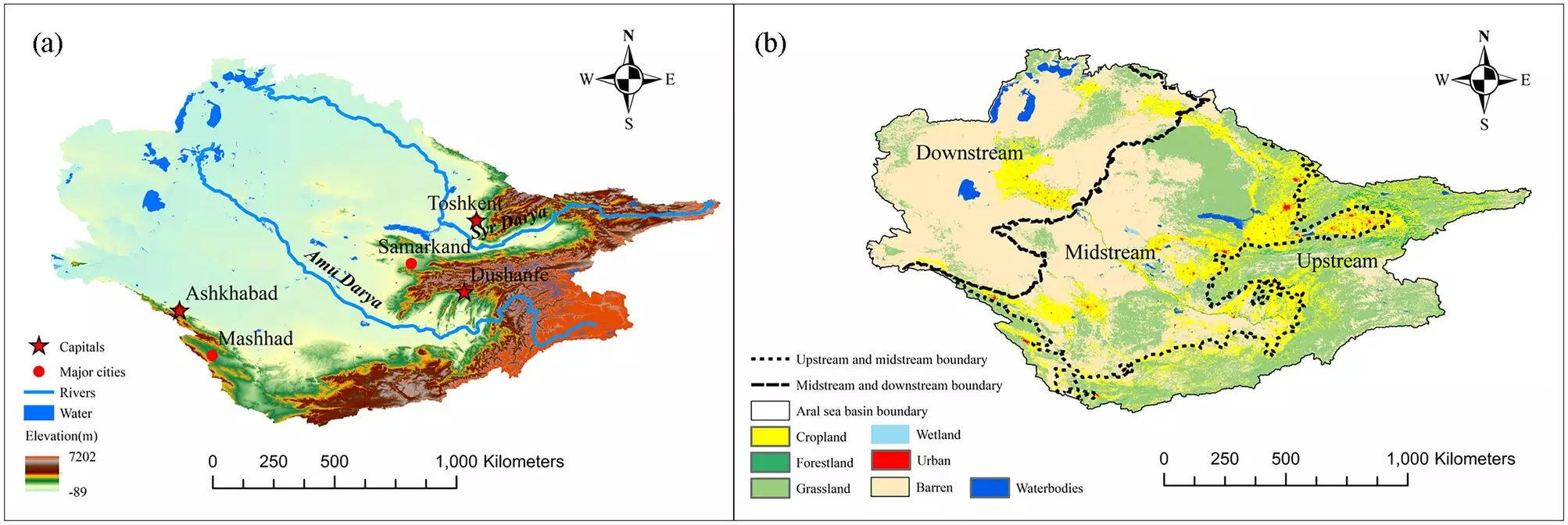The Aral Sea, once one of the largest lakes in the world, has been shrinking at an alarming rate due to a combination of climate change and human activities. This phenomenon has led to a severe ecological crisis in the region, affecting key ecosystem services crucial for the survival of the local flora and fauna. A recent study published in Scientific Reports sheds light on the spatiotemporal changes of four vital ecosystem services in the Aral Sea basin.
The researchers, led by Prof. Yu Ruide from the Xinjiang Institute of Ecology and Geography of the Chinese Academy of Sciences, used advanced models such as the Future Land Use Simulation Model (FLUS) and Integrated Valuation of Ecosystem Services and Trade-offs (InVEST) to analyze the changes in water production, soil conservation, carbon storage, and habitat quality over two distinct timeframes. The study revealed alarming trends, with a significant reduction in water area (-49.59%) and a drastic increase in urban areas (+504.65%) from 1995 to 2020. This shift has resulted in a continuous decline in cropland, forestland, and grassland, signaling a growing conflict between agricultural and urban expansion.
Looking ahead to the future (2021-2100), the researchers projected a bleak scenario under the SSP245 scenario, characterized by significant losses in ecosystem services across the Aral Sea basin. This projection highlights the urgent need for intervention and restoration efforts to mitigate the environmental degradation in the region. The study also pointed out the intricate relationships between habitat quality, soil conservation, and water quantity, emphasizing the need for a holistic approach to land management and conservation.
Implications
Prof. Yu Yang, the corresponding author of the study, emphasized the importance of considering synergies and tradeoffs between different ecosystem services when designing restoration plans for the Aral Sea region. This critical insight underscores the complexity of addressing the ecological challenges facing the basin and the necessity of adopting sustainable land management practices that prioritize ecosystem services.
The study provides valuable insights into the dynamic changes of ecosystem services in the Aral Sea basin, serving as a vital reference for policymakers and environmental experts tasked with formulating effective land management strategies. The findings underscore the pressing need for collaborative efforts to address the adverse impacts of climate change and human activities on the fragile ecosystem of the Aral Sea.


Leave a Reply